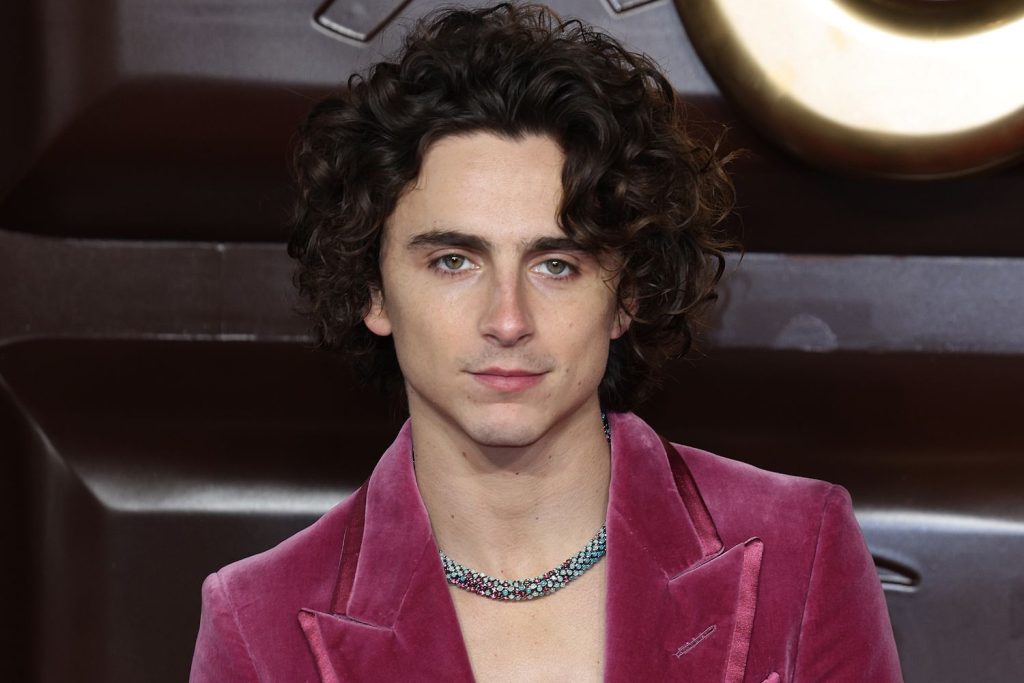Timothée Chalamet says he was told he didn’t ‘have the right body’ for some big roles
3 min read
Timothee Chalamet. Photo: Neil Mockford/FilmMagic

Timothee Chalamet. Photo: Neil Mockford/FilmMagic
Timothée Chalamet has candidly shared how Hollywood’s emphasis on physical appearance affected his early career, shedding light on the challenges male actors face in an industry often criticized for its focus on looks. In a recent interview with Apple Music’s Zane Lowe, Chalamet revealed how casting agents and industry professionals critiqued his physique early on, an experience he says is all too familiar for women in the industry, but less often discussed when it comes to men.
The “Dune” star recalled the early days of his career when he auditioned for roles in high-profile franchises like The Maze Runner and Divergent, both of which were part of the wave of young adult adaptations that dominated Hollywood in the 2010s. Chalamet explained, “If I auditioned for The Maze Runner or Divergent, things of that variety that were popping when I was coming up, the feedback was always, ‘Oh, you don’t have the right body.’”
This wasn’t just a passing comment, but something that came from an agent who suggested he needed to bulk up to meet industry standards. Chalamet noted, “I had an agent that called me and said, ‘You got to put on weight,’ basically — not aggressively, but you know.”
Chalamet’s comments underscore the pressure young actors face to conform to a specific physical ideal in order to land major roles. In his case, the “right body” was likely in line with the muscular, action-hero look that many of the male stars in blockbuster films possessed at the time.
Despite this early push to fit a particular mold, Chalamet’s career eventually took a different path, one that embraced his unique talents rather than his physical appearance. The actor’s breakout role in Call Me by Your Name (2017) showcased his acting chops without requiring a physical transformation. From there, his filmography expanded to include roles in Beautiful Boy, Little Women, and the Dune franchise, all of which relied on his acting abilities rather than conforming to Hollywood’s typical body standards.
In the same interview, Chalamet reflected on how his career path, particularly his transition into more commercial films, mirrored the journey of legendary musician Bob Dylan. Chalamet is set to portray Dylan in the forthcoming biopic A Complete Unknown, a role that has deeply resonated with him.
He compared his journey to Dylan’s, saying, “For [Dylan], it was folk music. He couldn’t keep a rock and roll band because they would all get hired by other kids that had more money, literally, in Minnesota.” The role has been a personal one for Chalamet, who added, “I am now deep in the church of Bob, and I feel like I get this opportunity to kind of be a bridge to this music.”
The actor’s reflection on the path he has taken in Hollywood is grounded in the smaller, more intimate films that initially launched his career. He said, “Those were smaller budget, but very — I don’t know how else to put it — personable movies that started in this theater space. This is where I found my rhythm, my confidence, my flow, whatever you want to call it.”
It was these “personable” films, which focused more on character and emotion than on box office draw or physical appearance, that helped Chalamet build the foundation for his later success. From these early experiences, he was able to carve out a space for himself in a competitive industry, one where traditional notions of beauty and physical standards can often overshadow talent.
Looking ahead, Chalamet is poised to continue pushing boundaries with diverse and dynamic roles, starting with A Complete Unknown. The film, which takes on the story of Bob Dylan, will be released on Christmas Day. Chalamet’s role as the iconic musician will be yet another milestone in a career defined by thoughtful, nuanced performances and a rejection of the stereotypical demands of Hollywood stardom.
In his candid interview, Chalamet’s reflections on body image in the industry, alongside his passion for storytelling and music, paint a picture of an actor who continues to choose roles based on his artistic growth, rather than adhering to an outdated standard of what a leading man should look like.